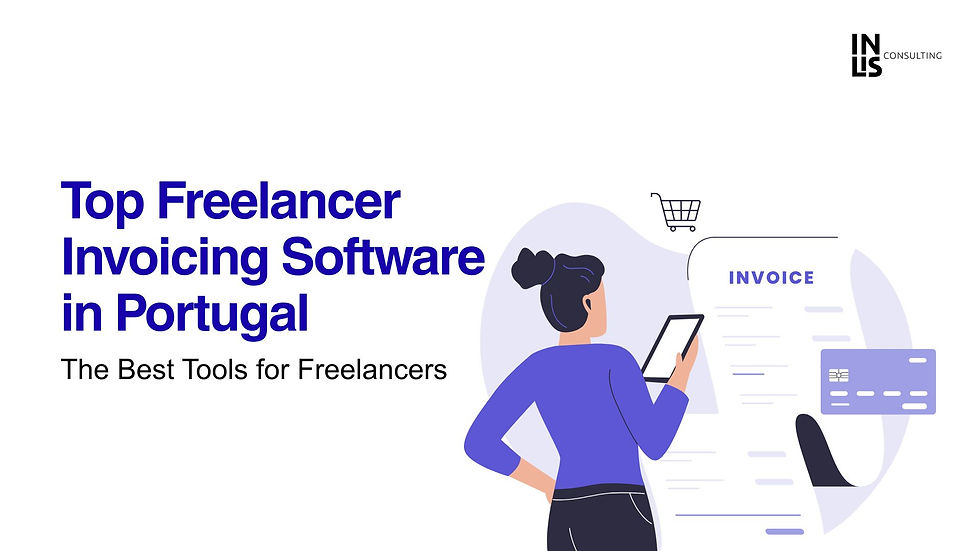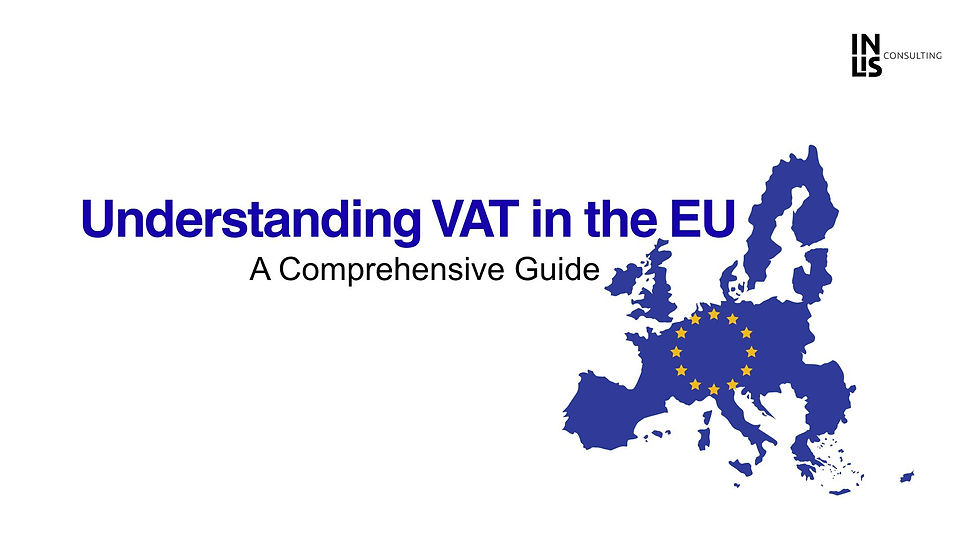Freelancer vs Company: Which Is Better for You in Portugal?
- INLIS Consulting
- Aug 21, 2025
- 3 min read
Should you register as a freelancer (recibos verdes) or open a company in Portugal? Here’s a full guide comparing setup process, tax obligations, and benefits for both options.

If you’re planning to work for yourself in Portugal, you’ll need to decide whether to operate as a freelancer (trabalhador independente) or to create a company (empresa). Both options are valid, but each comes with different tax obligations, costs, and benefits.
In this guide, we’ll explain:
How to set up as a freelancer or company in Portugal.
The main tax responsibilities are for each.
When it makes sense to choose one over the other.
Quick Comparison: Freelancer vs. Company
Feature | Freelancer (Trabalhador Independente) | Company (Empresa – LDA) |
Setup | Register at Finanças with NIF and activity code | Can be created in a few hours through Empresa na Hora |
Initial Cost | Free | Share capital from €1 per partner (often €1,000+) |
Liability | Unlimited (personal assets at risk) | Limited liability (personal assets protected) |
IRS/IRC Tax | IRS on personal income (progressive up to 48%) | IRC flat rate 21% (+ municipal and state surcharges) |
VAT (IVA) | Exempt if income < €14,500; otherwise charge VAT | Must charge VAT from the start |
Social Security | 21.4% of 70% of income (after 12-month exemption) | 21.4% for managing partners + 23.75% employer rate for employees |
Accounting | Simplified, no accountant required (unless income > €200k) | Must have a certified accountant |
Best For | Low/medium income, working solo, flexible work | High income, employees, business growth, credibility |
Option 1: Working as a Freelancer in Portugal
Freelancing in Portugal is the simplest way to start working independently. It’s ideal for those who are just beginning, work alone, or have a relatively low annual income.
How to Register as a Freelancer
You need a NIF (tax number).
Register at the Finanças portal under an activity code (CAE/CIRS).
You’ll then be able to issue green receipts (recibos verdes) for clients.
Tax Obligations for Freelancers
IRS (Personal Income Tax):
Taxed on profit (income – deductible expenses).
Can be under the Simplified Regime (automatic expense calculation) if earning under €200,000 per year, or the Organized Accounting Regime if above that threshold.
The annual tax return is filed in the spring.
IVA (VAT):
If annual income is below €14,500, → exempt from charging VAT (art. 53 regime).
If above, must charge VAT (23% in most cases) and submit quarterly returns.
Social Security:
First 12 months → exemption.
Afterwards → pay 21.4% of declared income (calculated on 70% of revenue in the simplified regime).
Option 2: Creating a Company in Portugal
For those with higher income, employees, or business ambitions, setting up a company (such as LDA – Private Limited Company) may be the smarter choice.
How to Create a Company
You can use Empresa na Hora – a government service that allows you to register a company in just a few hours at a single counter.
Minimum share capital: €1 per partner (although many start with at least €1,000).
Requires a company name, legal address, and articles of association.
Tax Obligations for Companies
IRC (Corporate Tax):
Standard rate: 21% on company profits.
Municipal surcharge: up to 1.5% depending on the municipality.
State surcharge: applies to profits over €1.5M.
IVA (VAT):
Must register and charge VAT from the start (no exemption).
Quarterly VAT returns required.
Social Security Contributions:
For employees: 23.75% (employer) + 11% (employee).
For managing partners: 21.4% of income.
Accounting & Compliance:
Must have an official accountant (TOC/ROC).
Annual filing of accounts and corporate tax return.
Freelancer vs. Company: Which Should You Choose?
Freelancer is better if:
Your income is below €30,000–€40,000 per year.
You work alone and don’t plan to hire.
You want a flexible, low-cost setup.
The company is better if:
Your income is high (above €40,000 per year).
You plan to hire employees or bring in partners.
You want to separate personal and business liability.
You’re seeking investment or bank financing.
Conclusion
Choosing between freelancing and creating a company in Portugal depends on your income level, business goals, and risk appetite. Freelancing offers simplicity and flexibility, while a company structure gives credibility and tax advantages for higher incomes.
At INLIS Consulting, we can help you decide which option suits your situation and handle the full setup—from registering as a freelancer to creating an empresa na hora, plus ongoing tax and accounting support.




Comments